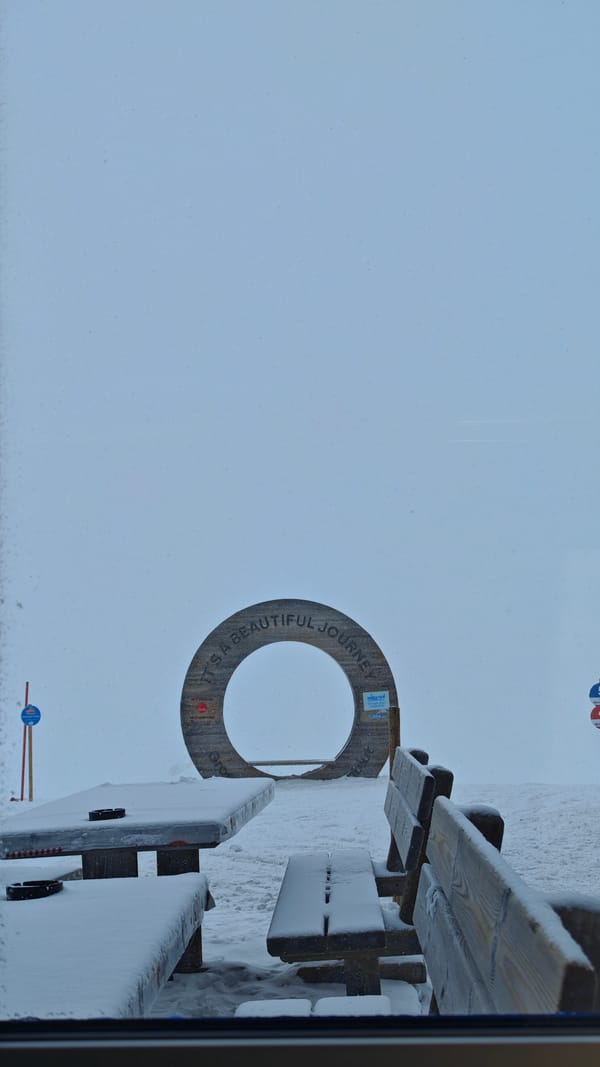Week 31/2025
And I wonder why we said, what we said
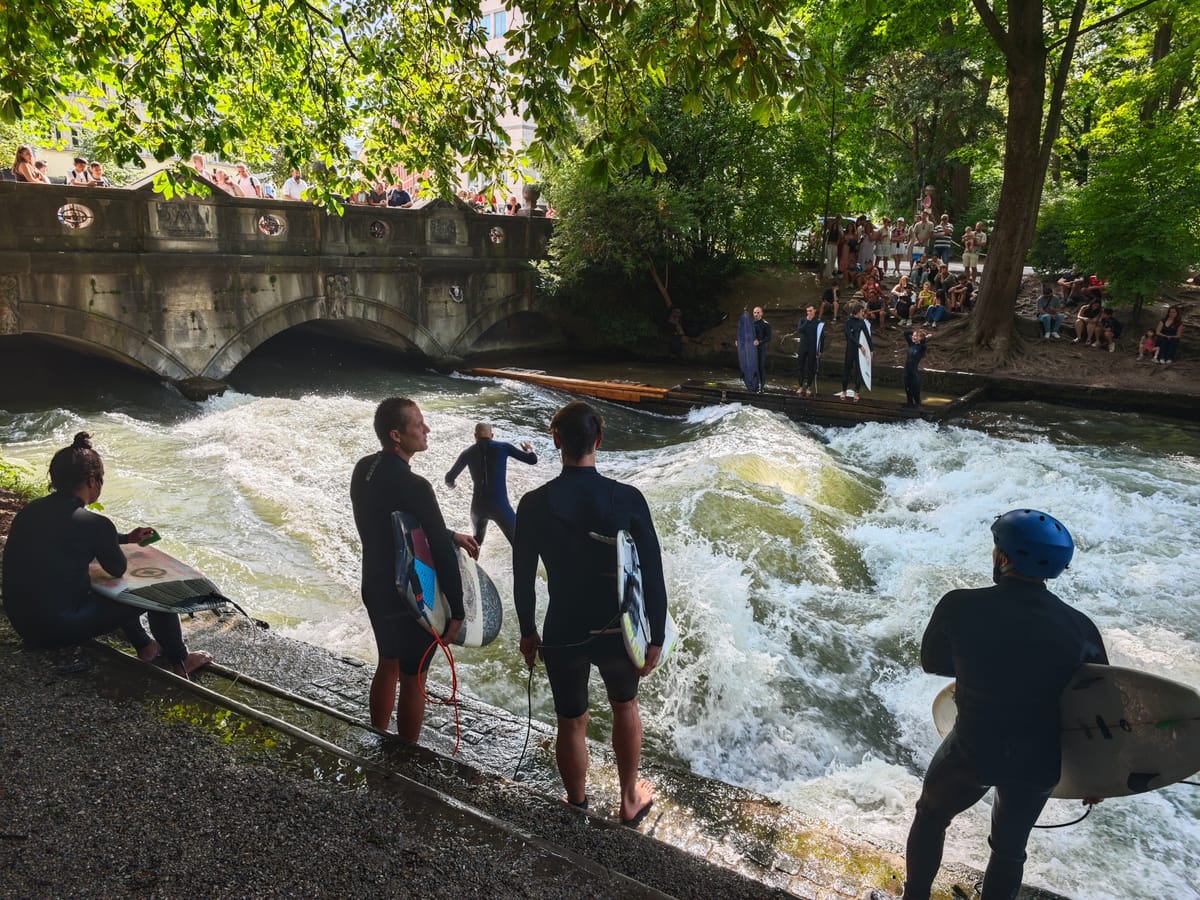
Eisbachwelle in Englischer Garten in Munich on Wednesday. After a fatal accident earlier this year, the city reopened the place to surfers a few weeks ago.
NSFW (Nikolaus’ Song For the Week)
This week’s son is an old time classic from Wallners. I believe that I heard it first in one of the many Covid-lockdowns and since then it has been accomagnying me quite often. Voice and arrangement are beautiful.
The YouTube video is another 0 budget production.
The band will play in Konzerthaus on November 12. Here’s an interview with nice portraits. For Wikipedia, there is some kinship with Cigarettes after Sex (which is a nice compliment; see also Weekly 46/2024); they remind me also, somehow, of Papermoon (who published their debut album 32 years ago!).
(When doing my research on this, I learned that Papermoon’s beautiful voice, Edina Thalhammer, was born precisely on the same day in the same year like me. Here’s an interview with her showing how difficult it might be to be a professional muscian in Austria.)
(By the way: Last week’s NSFW singer, Sodl, was extensively covered on ORF Topos this week.)
Retrospect
Brosius-Gersdorf
I spent too many hours on right to far right YouTube channels contextualising what happened with Brosius-Gersdorf (and now with Anne-Katrin Kaufhold). It’s a rabbithole but may I, again, warn that these things don’t disappear if they are ignored and that science and scientists (and lawyers) are strategic tagets. Just one example:
(530.000 Subscribers, 280.000 views, and counting!).
The video on the matter I am responsible for
started to trigger some reactions in the comment section, showing, again, to me how difficult it is to deal with this kind of propaganda in practice. For example: The link affirmatively posted under the video leads to a person desribed in this article:

Part of the picture is that Nius is a leading player in the campaign, that Nius owns large parts of the Austrian propaganda platform exxpress and that - trara - express is funded by public money dedicated to support quality media

which is - of course - put into the next debate on truth (or you may call it shitstorm) by them.
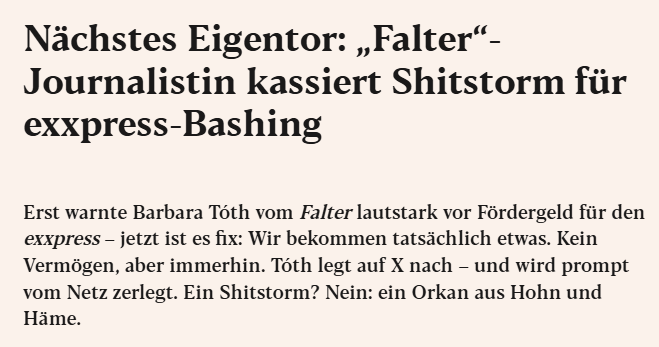
(Social) Media
The study of (ongoing) problems to get hate speech off the internet, undertaken by OIAT, - trusted flagger under DSA -
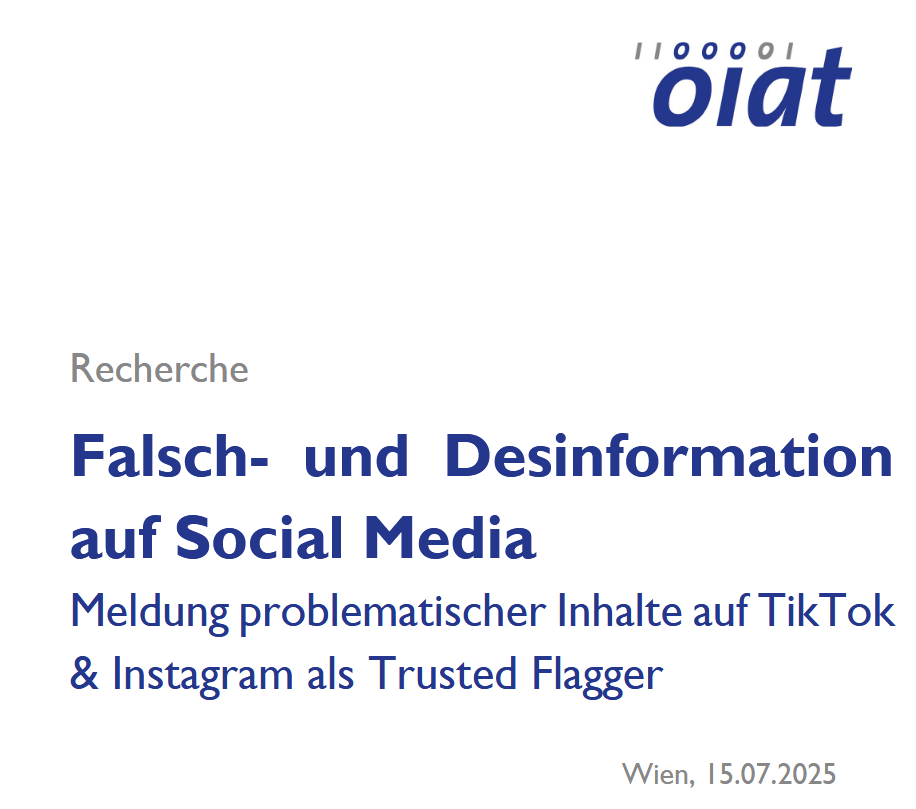
got some media attention, in Der Standard, and, in particular on ORF. I had the privilege to be a small part of the story in Ö1 Morgenjournal, https://sound.orf.at/radio/oe1/beitrag/3092799/luecken-bei-loeschpraxis-von-falschinformtaion-in-sozialen-medien, ORF.at, https://orf.at/stories/3400065/, ZIB1, https://on.orf.at/video/14284534/15918203/plattformen-lassen-extreme-postings-oft-online, Ö3 morning news https://sound.orf.at/radio/oe3/beitrag/15987504/nachrichten, and ZIB13, https://on.orf.at/video/14284522/15918008/maengel-bei-meldefunktionen-in-sozialen-netzwerken. I am currently planning an #arsboni session with the study authors, later in summer.
Barbara Buchegger from saferinternet.at discussed a similar issue - youth protection on social media - and the proposal to introduce new age limits and age verification systems - in the #arsbony #laundry.
I had the opportunity to sound like Darth Vader (due to a laryngitis) in an ORF-interview on potential exploitation of file sharing data for AI training and spoke, again for ORF, - with a better voice but a much worse internet connection - on Meta’s “pay or consent” model, urging users to either agree with targeted advertising or to pay for the subscription. The same topic was also covered in ORF ZIB 13.00 in TV (and on ORF.at), so that I had my four seconds of fame there stating that one should better ask someone else - the European Court of Justice.
Funnily, I gave these interviews from META premises in Munich as they were hosting the conference I attended.
Munich

It was rather difficult to find the venue (Meta’s premises in Munich) - there is some common attitude in tech companies to hide where they are located - and it was rainy and wet, but it was worth the trip. The panel I had the privilege to chair was quite optimistic that the AI act brings new opportunities for data protection (officers) and that harminisation/coordination of the different supervisory authorities will work. Most of the other panels were also united in complaining on the legal uncertainty in the existing regulatory environment and that collobaration and cooperation among authorities, industry and stakeholders are needed and will (somehow miraculously) happen.
I always ask myself in such situations whether it’s some kind of déformation professionelle that makes me so much less enthousiastic or whether this is a general character thing with me being very much on the pessimistic side of the spectrum.
Prospect
#arsboni
We will dig deeper into issues of youth protection on the internet. I will do a #laundry interview with the head of Vienna’s “Kinder und Jugendanwaltschaft” (Children and Youth Advocacy), Sebastian Öhner (who is a lawyer by training), and publish it, probably, next week.
I will also do (from Strobl) a live-session with my friend and colleague Dr. Lukas Feiler on requirements and limitations coming from the EU regulatory framework when it comes to youth protection reforms on a national level.
Strobl
Sommerhochschule and Sommerdiskurs will keep me very busy next week. The Sommerdiskurs programme is really outstandingly interesting this year. I will try to record parts of it and to publish them, like last years. At Sommerhochschule, I will teach on Law and Information Society in Europe. And I will - hopefully - see many of the law school’s doctoral school’s (Ars Iuris) PHD-students holding a Socratics seminar on campus. Here’s a report about last year’s session.
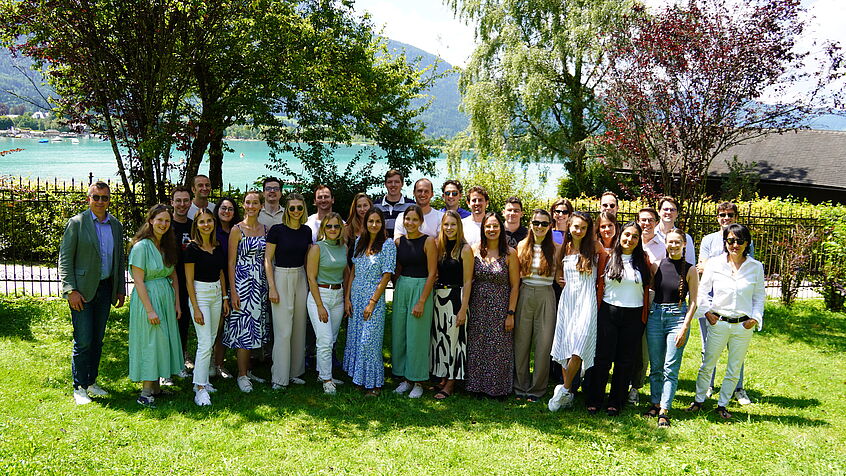
Look and Feel
Faserland
I’m currently reading Faserland (again) and I highly recommend it (again). Published in 1995, it has so much of the period after 1989 and before the first internet bubble arrived in it - and it’s masterfully narrated around its main topics disgust, contempt and self-destruction. It’s the perfect description of (my) generation-X, with all the barbour-jackets, alcohol and cigarettes and so much popular culture that is still visible today. I’m in particular fascinated by the way Kracht tells the story - a highly artificial “spoken” language - similar to Eurotrash, obviously.
Christian Metz published a very positive and noteworthy review of Eurotrash and Faserland on Deutschlandfunk.

And the Guardian is also very right when stating: “Short but hefty, Eurotrash is a book about ageing that’s steeped in a guilty knowingness about privilege, wealth and the 20th century.” Julia Lorenz in TAZ puts the text in its historical context of male masculinity in post 1989 Western Germany.

Peter Thiel
Deutschlandfunk has a quite interesting podcast on Peter Thiel (of German origin, born in 1967, just one year younger than Christian Kracht and also a member of white male Generation-X therefore).
There are some stories and Austrian/European references in it I had not been aware of such as that the Austrian theologist Wolfgang Palaver had met him in Stanford and that Carl Schmitt has had significant influence on his thinking. I also learned about Curtis Yarvin and am quite intrigued about the fact that soemeone writing such an obscure utter nonsense on his Substack (‘Reconciling the right’) can achieve important intellectual influence and is not seen as - simply completly crazy. This whole dark enightment, Armageddon, Antichrist blabla influencing people like Thiel and Vance is very difficult to understand.
The series is, in my view, also a good example how many (political) podcasts produced by German public TV generally “sound” at the moment. Funnily, Der Standard found the podcast interesting as well and published a review on Thursday.

Daisy

© Birgit Forgó-Feldner
enjoys summer.
Have a wonderful week!
Kind regards
Nikolaus (Forgó)

